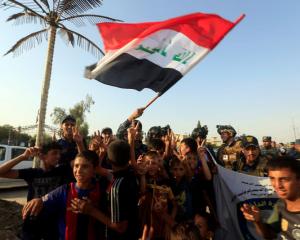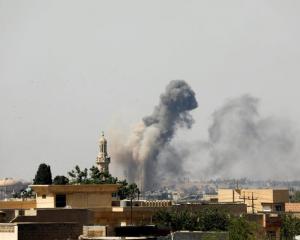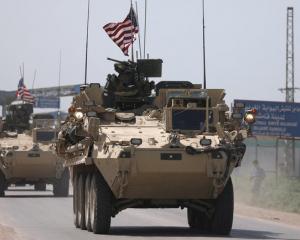A suicide bomber driving a car has killed at least 27 Shi'ite Muslims at a bus station in the Iraqi town of Mussayab, police and medics say, as they were gathering to return home from a religious rite.
The attack, which also wounded at least 60, underlines sectarian tensions that threaten to further destabilise the country a year after U.S. troops left.
Police said the bomber drove into a busy bus station where pilgrims were catching buses back to Baghdad and the northern provinces after the Arbain rite in the holy city of Kerbala, where thousands make an annual pilgrimage.
Mussayab is 60km south of the capital Baghdad.
"I was getting a sandwich when a very strong explosion rocked the place and the blast threw me away. When I regained my senses and stood up, I saw dozens of bodies," said Ali Sabbar, a pilgrim who witnessed the explosion.
"Many cars were set on fire. I just left the place and didn't even participate in the evacuation of the victims."
Arbain has been a frequent target for militants since the U.S.-led invasion that toppled Sunni dictator Saddam Hussein, who banned Shi'ite festivals.
A roadside bomb targeting a minibus transporting Shi'ite pilgrims back from Kerbala also wounded 8 people in New Baghdad.
The latest violence followed nearly two weeks of protests against Shi'ite Prime Minister Nuri al-Maliki by thousands of people from the minority Sunni community in the western province of Anbar, which shares a border with Syria.
The protesters accuse Maliki of being under the sway of non-Arab Shi'ite neighbour Iran and of marginalising Sunnis, who dominated Iraq until the 2003 U.S.-led invasion.
They want Maliki to abolish anti-terrorism laws they say are used to persecute them.
The conflict in neighbouring Syria, where a Sunni majority is fighting to topple government backed by Shi'ite Iran, is also whipping up sectarian sentiment in Iraq and the wider region.
Although violence is far lower than during the sectarian slaughter of 2006-2007, a total of 4,471 civilians died last year in what one rights group described as a "low-level war" with insurgents.
No group claimed responsibility for Thursday's attacks, but Iraq is home to several Sunni insurgent groups including a local branch of al Qaeda, the Islamic State of Iraq, which often targets Shi'ites, seeking to re-ignite sectarian strife.
At least 23 people were killed and 87 wounded in attacks across Iraq on Monday.









